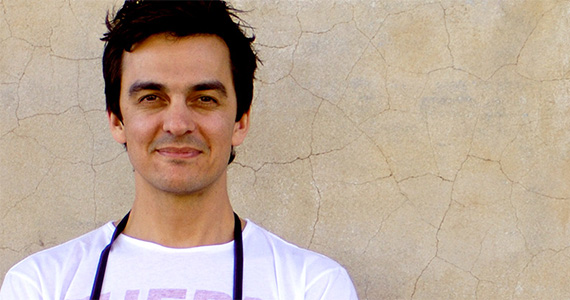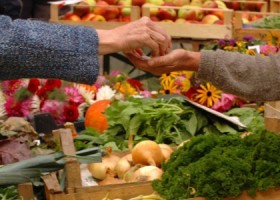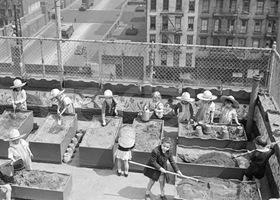Sydney’s Green Hero: Jared Ingersoll
Author | Green Villages
Founder of Danks Street Depot and outspoken champion of sustainable, ethical eating, Jared Ingersoll has been cooking for over 23 years.
Having cooked at landmark restaurants in both Australia and the UK, his gastronomic family now includes Danks Street Depot in Waterloo and Cotton Duck in Surry Hills.
Jared and his team have built a reputation for fabulous food made even better by the emphasis placed on locally sourced, seasonal produce. With one eye firmly focused on the food miles of his ingredients, Jared also manages to squeeze in time to campaign against genetically modified foods and to represent the restaurant industry on the Nature Conservation Council’s ‘Nice Choice’ sustainable seafood project.
Out of the kitchen, Jared has been a regular on television, writes a fortnightly column for Ciao Magazine and has written two award winning cookbooks, Danks Street Depot and Sharing Plates, with a third, Slow Food, his most recent offering.
What’s your life philosophy in a nutshell?
Live respectfully.
What led you along life’s green path?
Being brought up by parents who simply taught respect! Respect your elders, respect your food, and respect your environment. It was not so much a conscious thing, so much as just the way we lived.
What is it about your businesses that make them stand out in terms of sustainability?
We do what we do simply because it’s the way we are. It has nothing to do with marketing, nor is it a PR choice; I honestly believe you can make the world a better place one mouthful at a time.
Before we bring anything into our business we consider how and where the product was produced, what will happen to it when we are finished, what waste will be produced, can it be composted or recycled… everything in between is creative, fun and delicious!
I am currently working towards zero waste. I believe I can get down to one general waste bin and two recycle bin pick-ups a week. Two years ago it was 9-13 bins a day!
What do you love about Waterloo and Surry Hills?
The dynamic nature of growth. A decade ago, neither of these areas were particularly vibrant, but these days, one look around tells such a different story.
Can you tell us three things to make our kitchens greener?
1. Don’t waste anything
2. Don’t buy pre-packaged food
3. Buy a compost bin
Waste is probably the biggest factor in a domestic kitchen. On average, waste makes for about 25 per cent of your food bill! This means, on average, for every $200 dollars you spend you throw $50 in the bin! Cost aside, think of the environmental impact if there was 25 per cent less demand on packaging and transporting your food. Imagine if instead of wasting 25 per cent of the cheapest mass-produced food available, we used that money to support slightly more expensive, yet ethically, locally produced, seasonal, delicious food!
How do you relax in the city?
In my garden with my boys, eating or riding through the city in the wee hours when everyone else is asleep.
Can you share you favourite seasonal recipe with us?
“The ‘learn to cook anything’ recipe”
This recipe can be applied to any season and is the very recipe that nearly every accomplished professional or domestic cook applies in one variation or another. Make this recipe your own, apply your own approach and ideas and make sure you have fun!
Step 1 – Take one visit to a market
Step 2 – Buy some ingredients that you have never used before from the person who has grown/produced them, ask their advice, learn about how it was produced, get engaged
Step 3 – Go home and have a crack! Be brave (remember, food can smell your fear so approach this new ingredient/dish with a confident hand)
Step 4 – Pay attention to the results. If it’s not good, why not? Then don’t do that again. If it’s delicious then why is it so? Do more of that!
Green Villages is a City of Sydney project about coming together as a community and creating a more sustainable city. Head over to Green Villages for a host of other ideas on green living and sustainable eating.






